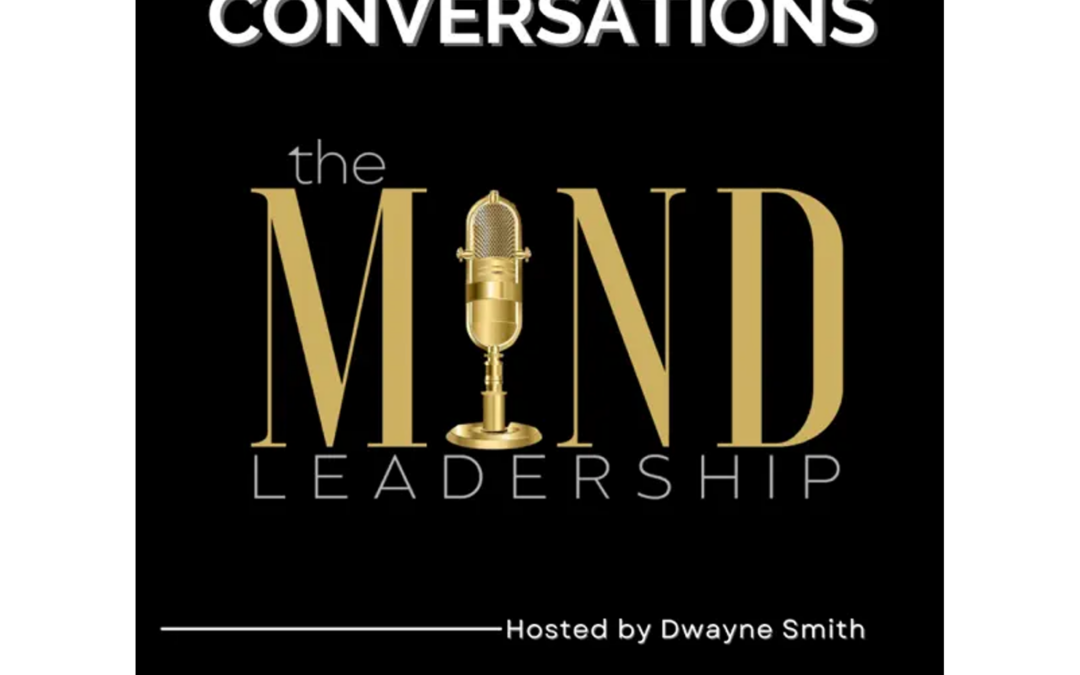


What are you afraid of?
“We identified four opportunities for market expansion, all adjacent to our current business, and entry into any one of them is almost guaranteed to materially grow our business. But no one is doing anything.”
I wanted to be surprised. Instead, I sighed and asked the question I knew he couldn’t answer.
“What are your colleagues afraid of?”
The Four Horsemen of the Apocalypse
Most of the time, when opportunities are clear, but action is absent, it’s because one of the first three horsemen of the innovation apocalypse appeared:
- Short-termism: “The CFO is worried we may miss the quarter, so we’re starting to make cuts.”
- Size: “We have a new President coming in who wants to put his stamp on things, so he’s cutting anything that won’t double out business in three years.”
- Scarcity: “We’re implementing a new process, and this would just be one thing too many for people to handle.”
The business my client described has doubled in the past five years. After fifty years of steady, reliable, and predictable revenue, its top line suddenly became the mythical “hockey stick of growth.” The technological driver of this change is more likely to be the “new normal” than a fad, so the business is expected to double again in the next five years.
Leadership isn’t worried about delivering the next quarter, year, or five years. They know that they have the resources they need and can access more when the time is right. They’re confident that the opportunities identified are feasible and meaningful.
Yet, they will not act.
I’m not afraid. I’m biased!
Behavioral economists, psychologists, and sociologists explain situations like the above by pointing out our “cognitive biases”—the “irrational errors that are programmed into our brains.” For example, the first three horsemen could be known as Present Bias, the hard-easy effect, and Loss Aversion.
As of 2024, over 150 cognitive biases have been identified.
While it’s comforting to blame programming bugs beyond our awareness and control for our “irrational errors,” this approach lets us off the hook a bit too easily.
I’m not biased. I’m afraid!
Fear is at the root of most, if not all, of these biases because emotions, not programming bugs in our brains, drive our decisions.
The study of how our emotions impact decision-making didn’t take off until the early 2000s. It really accelerated in 2015 when professors from Harvard, UC Riverside, Claremont McKenna College, and Carnegie Mellon published a meta-study on the topic and declared:
The research reveals that emotions constitute potent, pervasive, predictable, sometimes harmful and sometimes beneficial drivers of decision making. Across different domains, important regularities appear in the mechanisms through which emotions influence judgments and choices.
Bottom line – we decide with our hearts and justify with our heads.
Our hearts are afraid that we’ll lose the respect of our peers and loved ones, the reputations we’ve worked decades to build, the physical goods and intangible experiences that project our societal status, or the financial safety of a regular paycheck.
And, as my brilliant and kind sister told me, “These feelings we feel, these feelings are real.”
I’m afraid and biased and brave!
Next time you see someone (maybe you?) do something “irrational,” get curious and ask:
- What cognitive bias are they falling prey to?
- What is the fear that’s driving that bias?
- How can you help them to be brave, live with the fear, and move forward?
I’m curious…when was the last time you were afraid, biased, and brave?

If You Want to Be Happy, Ignore Your Customers
“Now I know why our researchers are so sad.”
Teaching at The Massachusetts College of Art and Design (MassArt) offers a unique perspective. By day, I engage with seasoned business professionals. By night, I interact with budding designers and artists, each group bringing vastly different experiences to the table.
Customer-centricity is the hill I will die on…
In my Product Innovation Lab course, students learn the innovation process and work in small teams to apply those lessons to the products they create.
We spend the first quarter of the course to problem-finding. It’s excruciating for everyone. Like their counterparts in business and engineering, they’re bursting with ideas, and they hate being slowed down. Despite data proving that poor product-market fit a leading cause of start-up failure and that 54% of innovations launched by big companies fail to reach $1M in sales (a paltry number given the scale of surveyed companies), they’re convinced their ideas are flawless.
We spend two weeks exploring Jobs to be Done and practicing interviewing techniques. But their first conversations sound more like interrogations than anything we did in class.
They return from their interviews and share what they learned. After each insight, I ask, “Why is that?” or “Why is that important?
Amazingly, they have answers.
While their first conversations were interrogations, once the nervousness fades, they remember their training, engage in conversations, and discover surprising and wonderful answers.
Yet the still prioritize the answers to “What” over answers to “Why?”
…Because it’s the hill that will kill me.
Every year, this cycle repeats. This year, I finally asked why, after weeks of learning that the answers to What questions are almost always wrong and Why questions are the only path to the right answers (and differentiated solutions with a sustainable competitive advantage), why do they still prioritize the What answers?
The answer was a dagger to my heart.
“That’s what the boss wants to know,” a student explained. “Bosses just want to know what we need to build so they can tell engineering what to make. They don’t care why we should make it or whether it’s different. In fact, it’s better if it’s not different.”
I tried to stay professional, but there was definitely a sarcastic tone when I asked how that was working.
“We haven’t launched anything in 18 months because no one likes what we build. We spend months on prototypes, show them to users, and they hate it. Then, when we ask the researchers to do more research because their last insights were wrong, they get all cra….OOOOHHHHHHHH…..”
(insert clouds parting, beams of sunlight shining down, and a choir of angels here)
“That’s why the researchers are so sad all the time! They always try to tell us the “Whys” behind the “Whats” but no one wants to hear it. We just want to know what to build to get to work. But we could create something people love if we understood why today’s things don’t work!”
Honestly, I didn’t know whether to drop the mic in triumph or flip the table in rage.
Ignorance may be bliss but obsolesce is not
It’s easy to ignore customers.
To send them surveys with pre-approved answers choices that can be quickly analyzed and neatly presented to management. To build exactly what customers tell you to build, even though you’re the expert on what’s possible and they only know what’s needed.
It’s easy to point to the surveys and prototypes and claim you are customer-centric. If only the customers would cooperate.
It’s much harder to listen to customers. To ask questions, listen to answers you don’t want to hear, and repeat those answers to more powerful people who want to hear them even less. To have the courage to share rough prototypes and to take the time to be curious when customers call them ugly.
So, if you want to be happy, keep pretending to care about your customers.
Pretty soon, you won’t have any left to bother you.

How to Design Offsites That Don’t Suck (and Generate $180k+ in New Revenue)
Corporate offsites – the phrase conjures images of everything from “mandatory fun” with colleagues to long and exhausting days debating strategy with peers. Rarely are the images something that entice people to sit up and shout, “YEA!” But what if the reality could be something YEA! worthy?
That’s exactly what the authors of the recent HBR article, “Why Offsites Work – and How to Get the Most Out of Them,” describe and offer a guide to accomplish.
Offsites May Be the Answer to the WFH vs. RTO Debate
Offsites aren’t new but they’ve taken on a new role and new significance as companies grapple with how to manage Work from Home (WFH) and Return To Office (RTO) policies.
As with most things in life, the pendulum swings from one extreme to another until eventually, finally, landing in a stable and neutral midpoint. When the pandemic hit, we swung from every day in the office to every day at home. Then society opened back up and corporate landlords came calling for rent, whether or not people were in the offices, so we swung back to Return to Office mandates.
Offsites, the authors suggest, may be the happy medium between the two extremes because offsites:
“give people opportunities for interactions that otherwise might not happen. Offsites create unique opportunities for employees to connect in person, forming new relationships and strengthening existing ones. As a result, offsites help people learn about others’ knowledge and build interpersonal trust, which are both critical ingredients for effective collaboration.”
Offsite Connections Lead to Collaborations that Generate ROI
After analyzing eight years of data from a global firm’s offsites and 350,000 “instances of formal working relationships” for 750 employees, the authors found that intentionally designed offsites (more on that in a moment) yield surprisingly measurable and lasting results:
- 24% more incoming requests for collaboration amongst attendees post vs. pre-offsite (silos busted!)
- 17% of new connections were still active two years after the offsite (lasting change!)
- $180,000 in net new revenue from collaborations within the first two months post offsite (real results!)
The benefits event extended to non-attendees because they “seemed to get the message that collaboration is important and wanted to demonstrate their commitment to being collaborative team players” and “likely identified new collaborators after the offsite through referrals.”
How to Design Offsites That Get Results
Four key strategies emerged from the authors’ research and work with over 100 other organizations:
- Design for the people in the audience, not the people on stage. Poll attendees to understand their specific needs and goals, then design collaborative activities, not management monologues.
- Design for the new hires, not the tenured execs. Create opportunities for new hires to meet, connect with, and work alongside more experienced colleagues.
- Set and communicate clear goals and expectations. Once the offsite is designed and before it happens, tell people what to expect (the agenda) and why to expect it (your design intentions and goals). Also, tell them how to make the most of the offsite opportunities by thinking about the skill and network gaps they want to fill.
- Track activities to measure ROI. The connections, collaborations, and commitments that start at the offsite need to continue after it in the form of ongoing communication, greater collaboration, and talent engagement. Yes, conduct a post-event survey immediately after the event but keep measuring every 2-3 months until the next offsite. The data will reveal how well you performed against your goals and how to do even better the next time.
Offsites can be a powerful tool to build an organization’s culture and revenue, but only if they are thoughtfully designed to go beyond swanky settings, sermons from the stage, and dust-collecting swag and build the connections and collaborations that only start when people are together, in-person, outside of the office.

Strategic Planning: You’re Doing It Wrong (According to Seth Godin)
It’s that time of year again – the annual ritual of strategic planning. But as Seth Godin points out in “How to Avoid Strategy Myopia,” we often mistake annual budgets and operational efficiency plans for true strategy. Strategies are not plans or guarantees; they’re informed choices to pursue possibilities that may or may not work.
Godin’s insights, while often associated with innovation, are fundamentally about strategy in its purest form. They challenge us to look beyond next quarter’s earnings and focus on transformative potential just beyond our current vision.
The Myth of “Strategic Planning”
Consider for a moment the last strategic planning session you attended. Was it dominated by discussions of cost-cutting measures, market share percentages, and incremental improvements? If so, you’re not alone. Many organizations focus on optimizing their current operations, behavior that is reinforced by the processes, templates, and forms required to secure next year’s funding.
However, as Godin warns, “When the boss demands a strategy that comes with certainty and proof, we’re likely to settle for a collection of chores, tasks, and tactics, which is not the same as an elegant, resilient strategy. To do strategy right, we need to lean into possibility.”
The Realities We Must Confront
Godin challenges us to confront several uncomfortable truths:
Today’s data doesn’t predict tomorrow: Executives rely heavily on easily measurable metrics based on false proxies when they make decisions. While these metrics provide a sense of control and comfort, they close our eyes to emerging opportunities and threats. When AT&T’s executives considered exiting the cell phone market in the 1980s, they turned to McKinsey to find data to inform their decision. Estimating that the total worldwide market for cell phones was 900,000, AT&T executives were comfortable exiting. It’s unknown if that comfort was worth the $11.5 billion AT&T spent to acquire McCaw Cellular in 1995.
Serving everyone serves no one: “Strategy myopia occurs when we fail to identify who we seek to serve and focus on what we seek to produce instead.” AMEN! True strategy begins with a deep understanding of our customers’ evolving needs, not just their current preferences. This requires empathy, foresight, and a willingness to challenge our assumptions. It also requires us to listen and act on what we hear from customers and not just from our bosses.
“All of the Above” is not an option: Strategy requires that we make choices and is as much about what we choose not to do as what we commit to doing. It requires the courage to say no to good opportunities in service of great ones. It requires facing your FOMO (Fear of Missing Out), loss aversion bias, and finding the courage to keep going.
5 Practical Steps You Can Take
If any of these sound familiar, it’s because they’re also innovation best practices.
- Dedicate One Day per Month for Strategic Thinking: Set aside one full day each month for long-term strategic questions, free from the “Tyranny of Now.”
- Cultivate Diverse Perspectives: Invite and listen to voices from different backgrounds, disciplines, and levels within the organization.
- Embrace Small-Scale Experimentation: Run a series of small, low-cost, low-profile experiments instead of betting everything on a single initiative.
- Redefine Success Metrics: Move beyond traditional financial metrics to include indicators of future potential, such as customer lifetime value and adaptability to change.
- Foster a Culture of Questioning: Channel your inner two-year-old and ask “why” with genuine curiosity. Encourage your team to challenge assumptions because the most transformative strategies often emerge from questioning the status quo.
As we continue through this season of strategic planning, let’s challenge ourselves to think beyond the annual budget. Let’s envision the future we want to create and chart a course to get there. After all, in the words of Godin himself, “It doesn’t matter how fast you’re going if you’re headed in the wrong direction.”